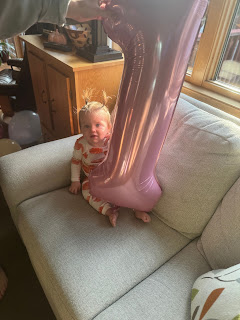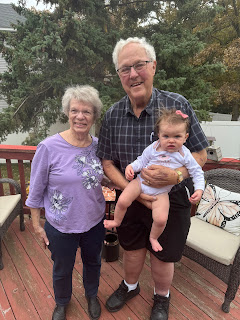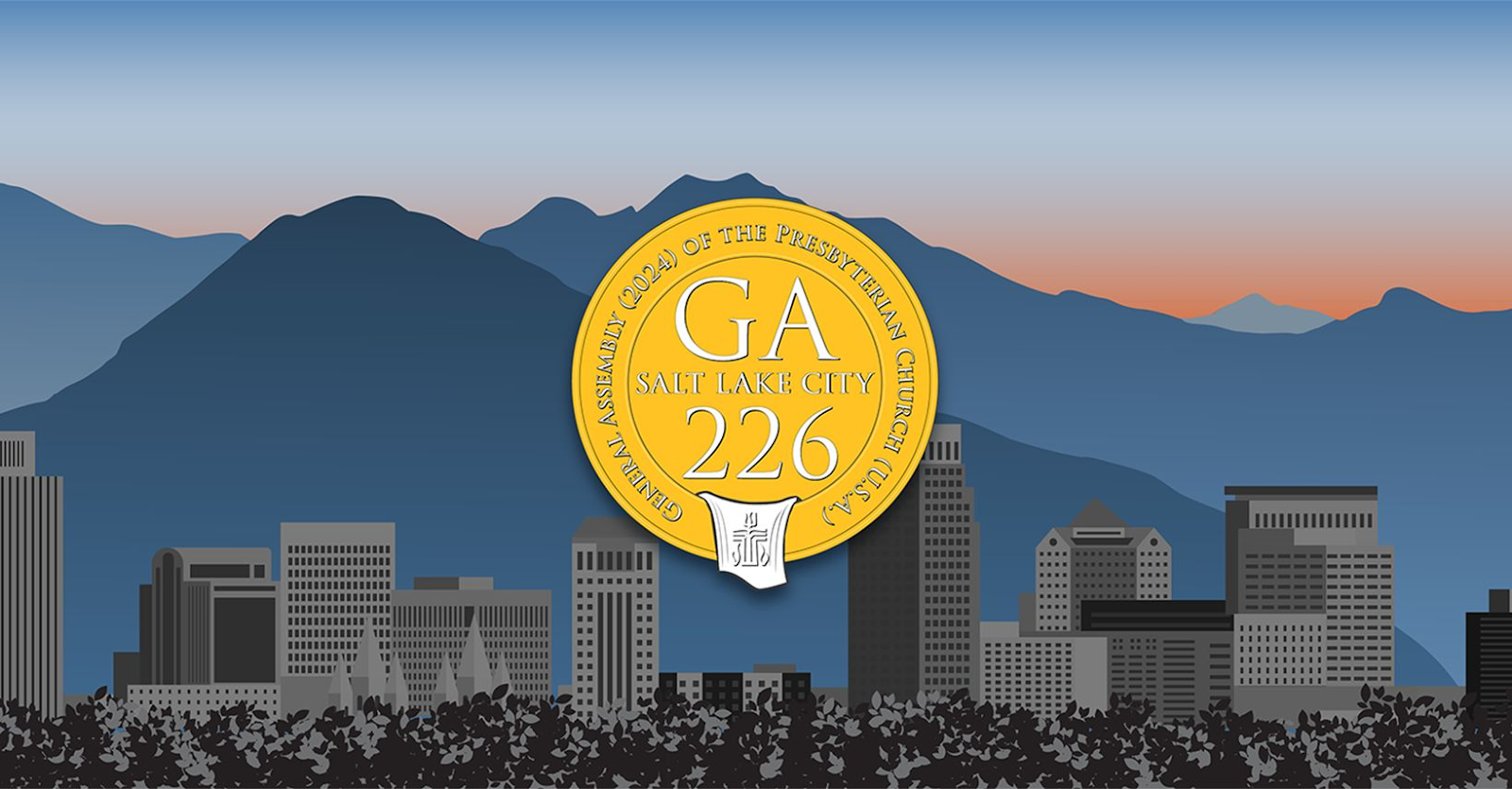Today our family is celebrating Amy & my daughter, Hannah’s 24th birthday. Twenty-four! Where did that time go? It does seem like literally yesterday that on Saturday, December 16, 2000, nine days after her due date, I was watching the doctor hold up Hannah right after she entered the world. And as he did that, I thought, “she’s here, she’s finally here.” I still remember how snug she felt as I held her for the very first time.
What a privilege it is for me to be Hannah’s father. When talking about me if you want to rename me, “Hannah Moore’s dad,” that would work.
This has been quite a year for Hannah. She is a full-time mom, a full-time student, with a full-time job. That’s three full-times in a life that is only meant for one. Plus she gets to keep growing and being with her lifetime partner, Carter. She’s handled the stress with grace and class—as she has always handled challenging situations.
What a pleasure it has been this past year to see her be a mother to Elouise. Hannah always brings joy to Elouise when Hannah comes into a room. Every-single-time. Elouise has this beautiful gesture of flapping her arms when she is happy. When Elouise sees Hannah walk in the room she almost always flaps and flaps, and flaps. Wow!
Hannah is remarkable as a mom. I love listening to her describe how a baby’s brain works. I would have taken parent classes from a twenty-four year old Hannah when I first became a parent to Hannah. She knows her stuff!
As a Case Manager for Thomas Allen, Hannah provides resources with people who need them. Often she will work from home, which for Hannah is in the lower level of our house. When I’m home I’ll sometimes hear her talking to a person who she is trying to help. Sometimes the person is quite old. It warms my heart to think that Hannah—in her early twenty’s—is providing help for someone who might be sixty or even seventy years older than her.
This isn’t surprising. Hannah has always had a special place in her heart for people much older than me. She was always willing to visit with my grandparents, and her grandparents. Her smile on her face shows her love and loyalty.
One of our connections is to sit next to each other and look out while Hannah puts her head on my shoulder. She asked that she have that picture taken this summer while our family was on vacation in northern Minnesota. What a privilege.My shoulder is always available, Hannah!
One time I’ll remember from this past year was watching the Gopher women play Maryland in basketball. I was able to find seats directly behind the Gopher bench. The game didn’t go well for the Gophers, but it was so much fun that I hope that we can have more Daddy/daughter dates at Williams Arena.
On occasion the two of us will have a disagreement—we do both come from strong-willed stock. But we both are able to let go of our emotions. Yay, God!
Seared in my memory is a day that I chewed out an Admission’s Officer for the school not accepting Hannah as a student. I remember telling them, “My daughter is going to make an impact in the world, and it’s a damn shame for you that she won’t be your alum."
Hannah—you are extraordinary! I only wish that time would go slower. To think that you are twenty-four still boggles my mind. You will continue to make an impact in the world. Watch out, world—here she comes!





































